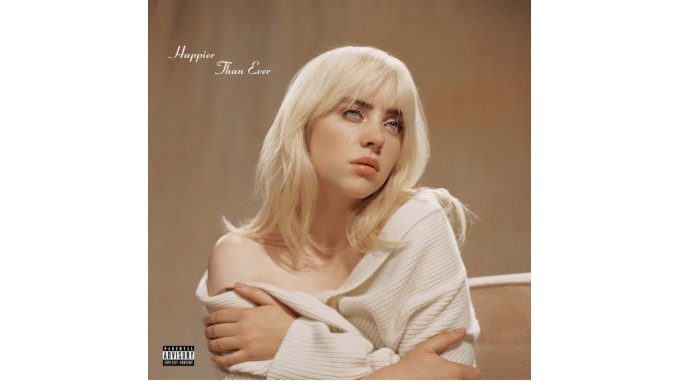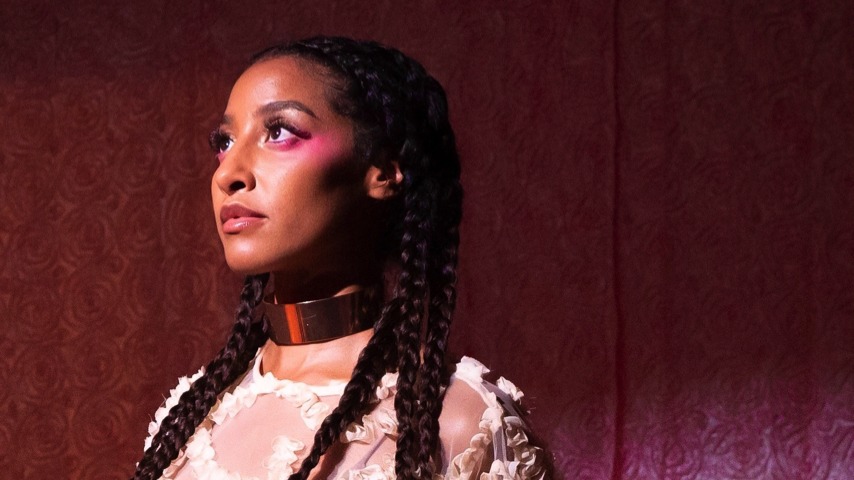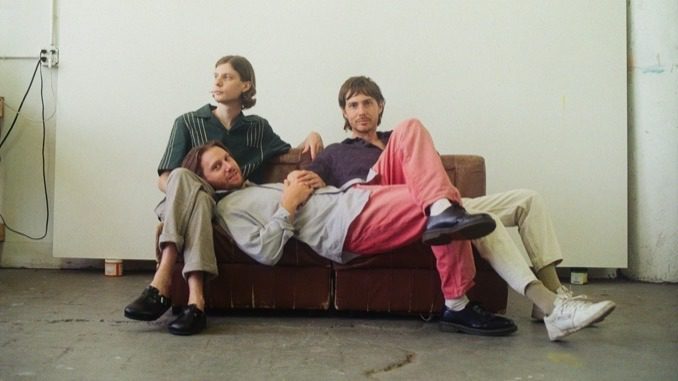There’s little reason to envy the superstars of today. In an age where every visible action or unintended double entendre is subject to intense scrutiny by the blood-starved, surveillance-like drones of internet fandom, whose brains’ pleasure centers have been deep-fried by overstimulation in conjunction with a global pandemic, it would seem that no matter what you do, you’re making somebody very, very upset. If you’re pop singer/songwriter Billie Eilish, you’ve spent much of your short but impactful time in the public eye battling the vitriolic gaze of those who judge you and your image, rather than your art.
After her landmark debut When We All Fall Asleep, Where Do We Go? placed the artist in superstar territory, she was met immediately with the warm embrace and cold, unrelenting reality of fame—seeds of salacious rumors about her past relationships and allegations of wrongdoing in her personal life were sown along the lead-up to her highly anticipated Happier Than Ever. Despite the tremendous pressure, Eilish sounds forthright, level-headed and often funny on an album that marks a clear progression for the artist—sacrificing some of the playfulness that defined her debut in favor of an honest, unflinching display of self-compassion, sensuality and strength.
Another collaboration with Eilish’s brother, songwriter/producer FINNEAS, Happier Than Ever maintains the duo’s rare skill for crafting tight, glossy tracks that sound simultaneously like the sentimental warmth of bedroom pop and the ambitious sheen of the studio. Opener “Getting Older” sets the stage for the sonic landscape of the album quickly: minimalist beats with sparse, chord-based instrumentals that often serve as a platform on which Billie can utilize her inimitable voice alongside imaginative, charming and often confrontational lyrics. “Getting Older” wrestles with the complexities—good, bad and scary—that arise after one achieves a certain level of fame. Somberly, she sings about how “things I once enjoyed / just keep me employed now” while painting mental pictures of “deranged strangers,” with both a solemn understanding of and appreciation for the situation.
Stepping away from the often-cartoonish pop that characterized her debut, Happier Than Ever is evocative of several eras of music, ranging from the consistent aesthetic influence of 1950s and ‘60s “Golden Age” artists like Peggy Lee and Julie London to the neo-soul hits of the late ‘90s and early 2000s, like on the effortlessly suave “Billie Bossa Nova,” or “I Didn’t Change My Number.” “GOLDWING,” one of the album’s most dreamlike and unique songs, begins with an a cappella intro that develops into harmonies, sounding almost hymnal and devotional before silence and a drum beat carries the track into familiar Eilish pop territory. Regardless of what style she’s inhabiting, she delivers her catchy and effective melodies with an emotional arc, lending an extra dynamic layer to the work.
A recurring theme of Happier Than Ever is Eilish’s dedication to following her own path, making it explicitly clear that she’s not interested in anybody’s approval of her personal decisions. Confronting her critical audience on the raw and biting “Not My Responsibility,” in which Billie retains some of the uniquely fitting ASMR vocal techniques that have characterized her music in the past, she stands her ground, exposing the arbitrary criticisms that feed into the often harmful discourse surrounding her and her work. Her voice, dry and direct, delivers “Am I my stomach? My hips? / The body I was born with? / Is it not what you wanted?” as though she’s whispering it directly into your ear. On the gorgeous and cinematic “my future,” she finds satisfaction charting her own way—an incandescent performance draped over snappy drums and a tight groove.
Keeping in line with the Sinatra-inspired glow and laidback ‘90s R&B-inspired haze that guide the album aesthetically, the often-experimental production FINNEAS brought to the table with When We All Fall Asleep is mostly absent. While successful at creating ambiance, oftentimes tracks feel instrumentally unfinished, like the pretty but under-seasoned “Everybody Dies,” or the danceable but ultimately static production of “OverHeated.” This stark minimalism misses the mark in terms of establishing dramatic tension, which is a shame given how much of the album—lyrically and in terms of its sequencing—relies on emotion-driven storytelling. Generally, much of the production on Happier Than Ever serves to bolster Billie’s vocals and thoughtful lyrics, while adding little character of its own.
When the production meets the ambition of the project, the result is positively electric. “Oxytocin,” the steamiest and sexiest track the songwriter has released thus far, carries with it the same subdued and energetic magic that’s defined some of her greatest hits, promising to demolish nightclub dance-floors when (if?) we get to make a truly safe return. On standout single “Therefore I Am,” the duo come the closest to flirting with the sound of Eilish’s debut, with an irresistible melody and pounding bass that conjure the image of some kind of digital circus.
To reconcile one’s own place in the music industry is one thing—it’s another to have to do it on the global stage, while growing into an adult, in an era where everyone is paying attention, against the backdrop of unthinkable tragedy. Billie Eilish continues to rise to the occasion on Happier Than Ever, staring down critics, naysayers and whatever the future holds while carrying self-love and compassion in her back pocket.
Jason Friedman is a Paste editorial music intern located in Philadelphia and they’re very afraid of ghosts.




